kakigori, shaved ice, summer in japan
Kakigori: Unlocking the Secrets of the Shaved Ice Delight!

Anna Ayvazyan
Posted on June 26, 2023
Share:
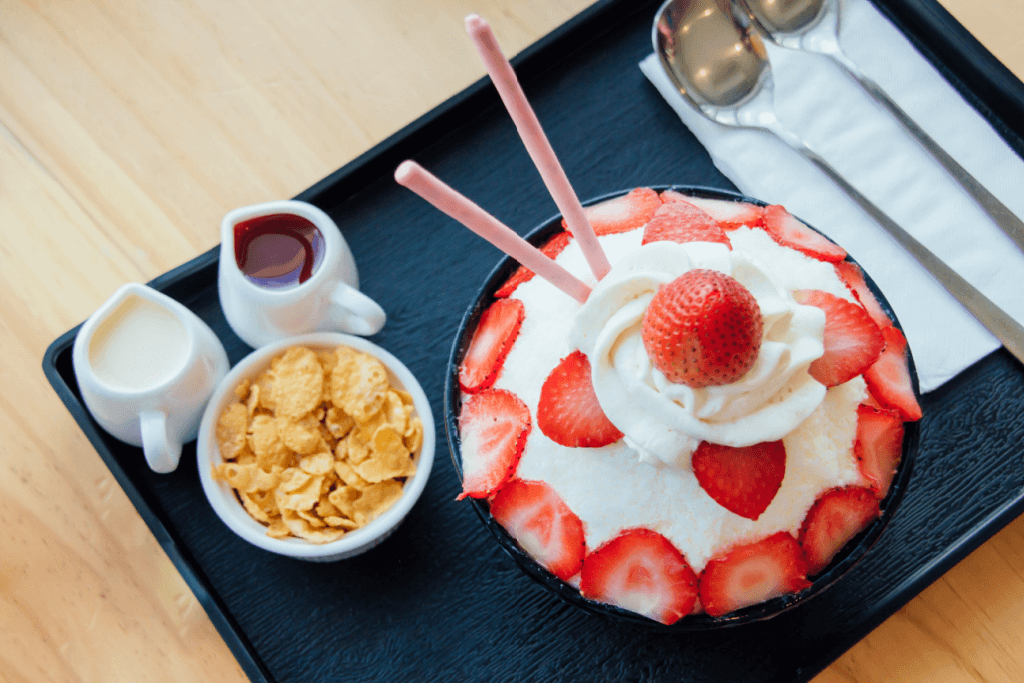
Summer in Japan can be sweltering and humid! When traveling around, enjoying a chilled dessert can refresh your journey! One way to do this is to have kakigori (shaved ice). Shaved ice in Japan slightly differs from what you may find in the West. Nevertheless, it has a long culinary history that people enjoy worldwide!
What is kakigori?
Kakigori is a type of dessert in Japan, typically consisting of shaved ice and flavored syrup. It has been a delicacy in Japan for thousands of years. The first known record of shaved ice as a dessert is from the Heian period (794-1185). It was recorded in the well-known book Makura no Soshi (The Pillow Book). This book contained observations by Sei Shonagon, a court lady.
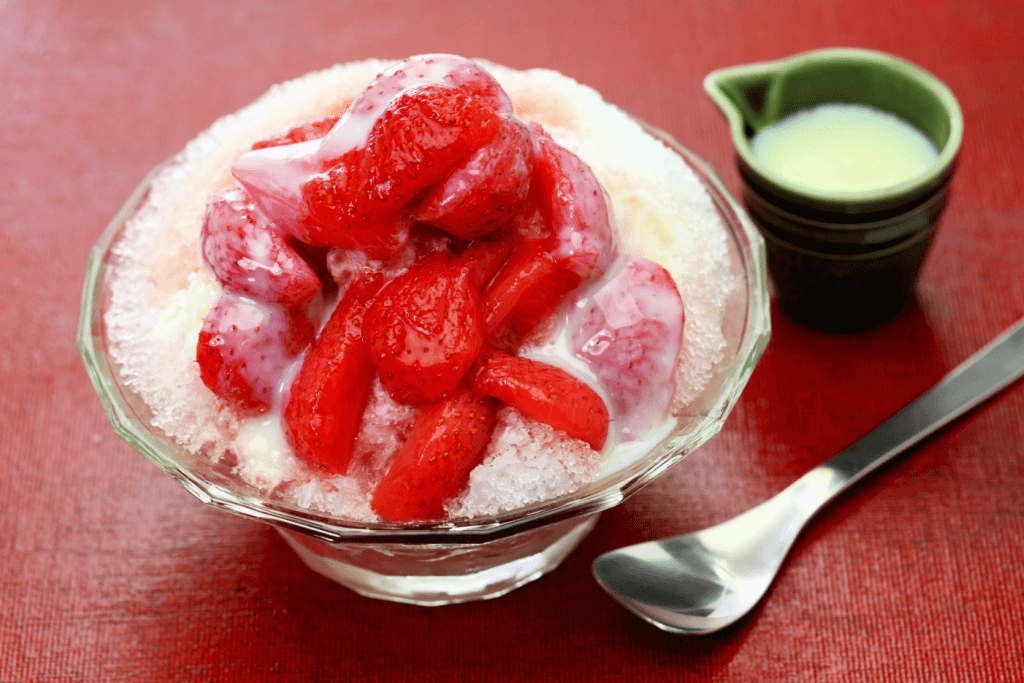
The book discusses ice with sweet sap from vines, hydrangeas, and crushed plums. Back then, people ate the ice from a deep metal bowl. During that time, ice was seen as a rare commodity and was only accessible to rich people. When they brought the ice back from expeditions, it was stored particular facility known as a himuro (ice house). A court official would guard the ice house.
When were people able to buy kakigori for the first time?
During the Meiji period, it wasn’t until the 19th century that shaved ice became affordable to the general public. At first, it was expensive because the ice came from America. At that time, they called imported ice “Boston Ice,” it took about six months to export to Japan. However, thanks to the food entrepreneur Kahe Nakagawa, kakigori shops opened.
Kahe Nakagawa found an economical way to bring ‘Hakodate Ice’ from Hokkaido to Yokohama, transforming food refrigeration and transportation in Japan. He opened the first shaved ice shop or hyosuiten in Bashamichi in Yokohama 1872. At first, shaved ice shops weren’t popular due to rumors that ice can give you stomach aches. But once summer arrived, people lined up to eat at his shop for two hours!
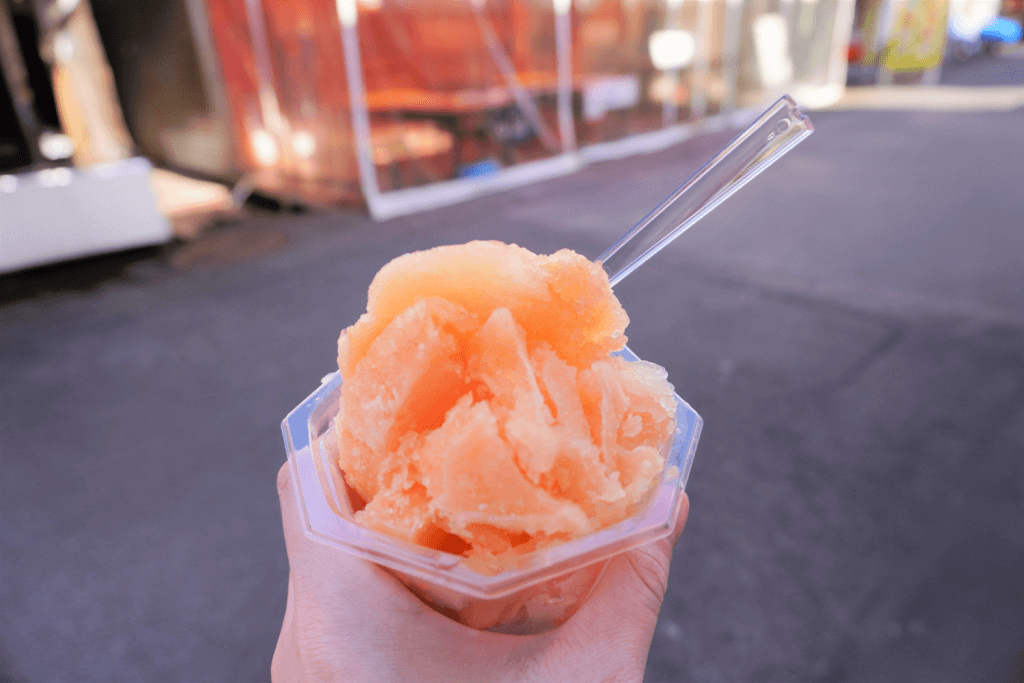
Ice-makers arrived in the middle of the Meiji period, and ice-shaving machines debuted later in the Showa period. Before ice-shaving machines, people shaved ice manually, limiting how many customers shops could service. But thanks to the machines, more businesses could include shaved ice on their menus! Nowadays, most cafes use electric ice shavers, but some places occasionally shave the ice manually.
Are you looking to enjoy even more traditional Japanese delights? Try Sakuraco! Sakuraco delivers traditional Japanese snacks, sweets, tableware, and more from local Japanese makers right to your door, perfect for a pleasant snack time at home!
Where can I find kakigori?
Many cafes and restaurants in Japan serve kakigori. A special banner or mark is placed in front of the store to make it easier to find. Typically the flag or mark is blue with a red character representing ice (氷) in the middle. The banner initially represented that the cafe/restaurant passed government hygiene inspections when kakigori first became popular. Now there are certificates showing certification, but banners are still popular.
What are the different types of kakigori?
There are different types of kakigori in Japan. Most cafes will have a regular option of shaved ice with matcha (green tea), strawberry, and melon syrups. These types are also commonly found during Japanese festivals in summer, as it is a great way to deal with the heat! The regular version can be very satisfying to eat, but other fun kakigori options exist!
Kakigori with fresh fruits
In summer, plenty of delicious fresh fruits are available in Japan, and many cafes make kakigori dishes with them. The most popular fresh fruit kakigori are mango, kiwi, cherry, and peaches. Many cafes get their peaches from Okayama prefecture, famous for juicy peaches!
Ujikintoki
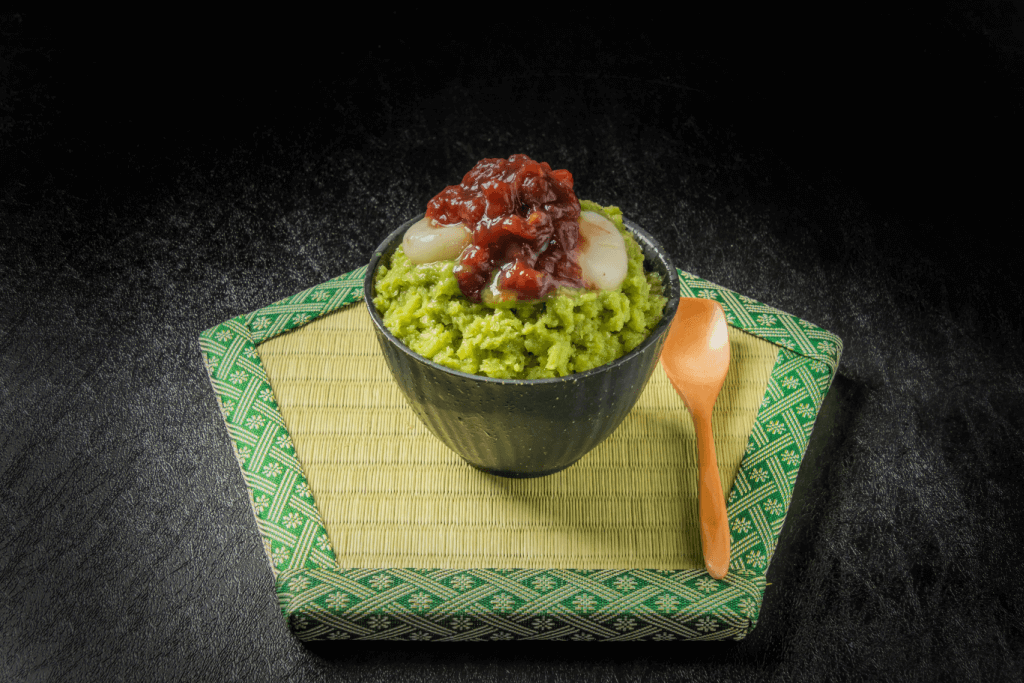
This type of kakigori is typically available in cafes serving traditional Japanese desserts. The matcha syrup in this kakigori differs from the one used in regular kakigori options. Uji is a region in Kyoto famous for its high-quality green tea that you can taste. Shops that use Uji matcha typically include red bean and mochi toppings to help balance the tea taste.
Shirokuma
This kakigori originated from Kagoshima prefecture and quickly became popular throughout Japan. The shaved ice usually comes with condensed milk, fresh fruit, and sometimes red bean. In Japanese, shirokuma means “white bear.” Usually, many shops will shape the kakigori to look like a cute bear.
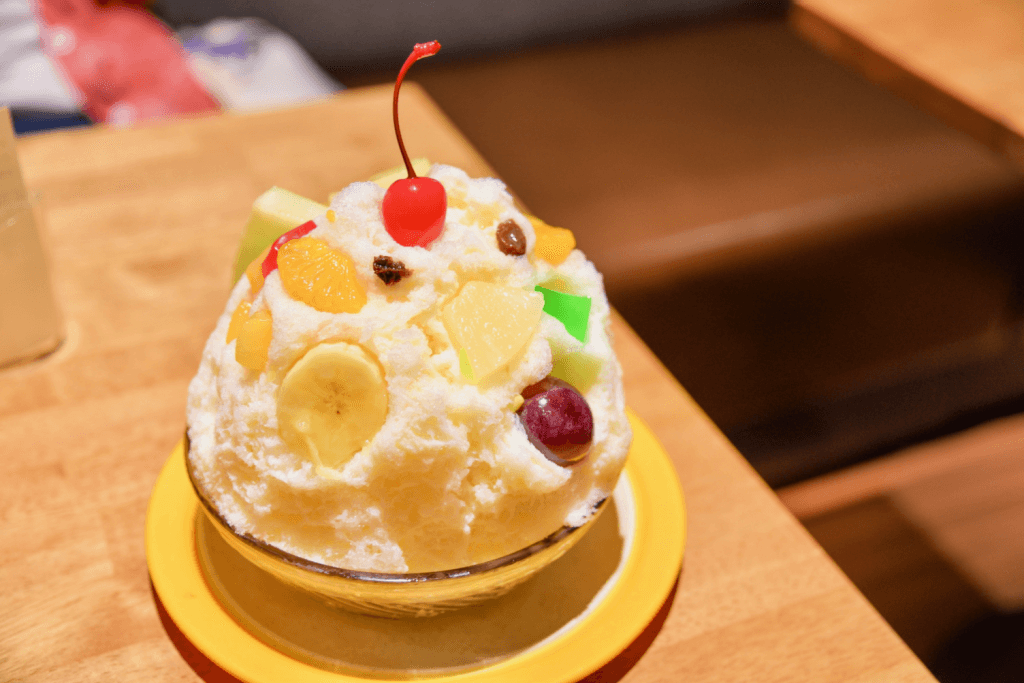
Kuromitsu
Kuromitsu is a sugar syrup in Japan sometimes called “black honey” due to its dark color. It’s present in many traditional Japanese sweets, such as warabimochi and anmitsu. Since it is closely associated with traditional sweets, this flavor is more common in Kyoto.
Alcoholic
Recently, some cafes and restaurants have been trending to serve kakigori with alcoholic mixtures such as Bailey’s Irish Cream, sake, or gin. The alcoholic content of the dessert is usually between 2-4%, but it can still be fun to try! One place to try it is Tea and Sake Tasuki in Kyoto. Their menu features seasonal ingredients, changing every month!
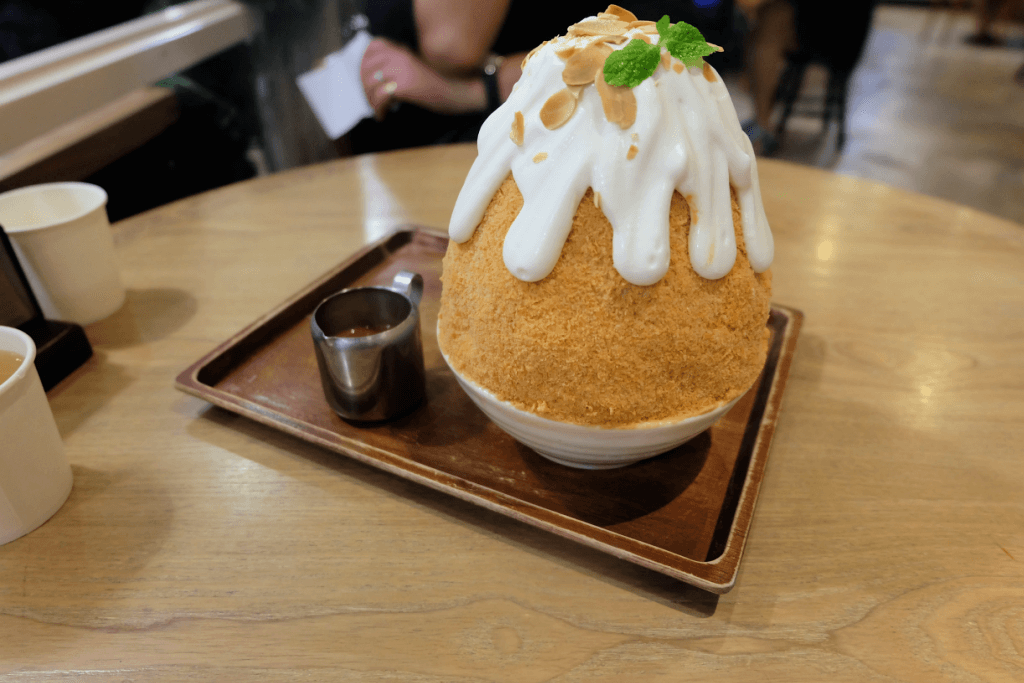
Kakigori is undeniably one of the best ways to savor the delightful Japanese summer. Beyond being a refreshing dessert, its hydrating properties make it a healthier choice to beat the heat. The diversity of kakigori types adds to the excitement, offering myriad flavors and toppings to suit every palate. From classic favorites like strawberry and matcha to inventive combinations, there’s a kakigori waiting for everyone’s taste buds.
Whether you’re craving something fruity, creamy, or even a fusion of flavors, kakigori has something to offer. So, the next time you find yourself in Japan during summer, take the chance to indulge in this delightful icy treat and create lasting memories of a Japanese summer experience. Please share your favorite kakigori choices in the comments below, and let’s celebrate the joy of this beloved Japanese dessert together!

Discover authentic flavors with Sakuraco
Get Sakuraco 

Discover authentic flavors with Sakuraco
Get Sakuraco 
Related Articles
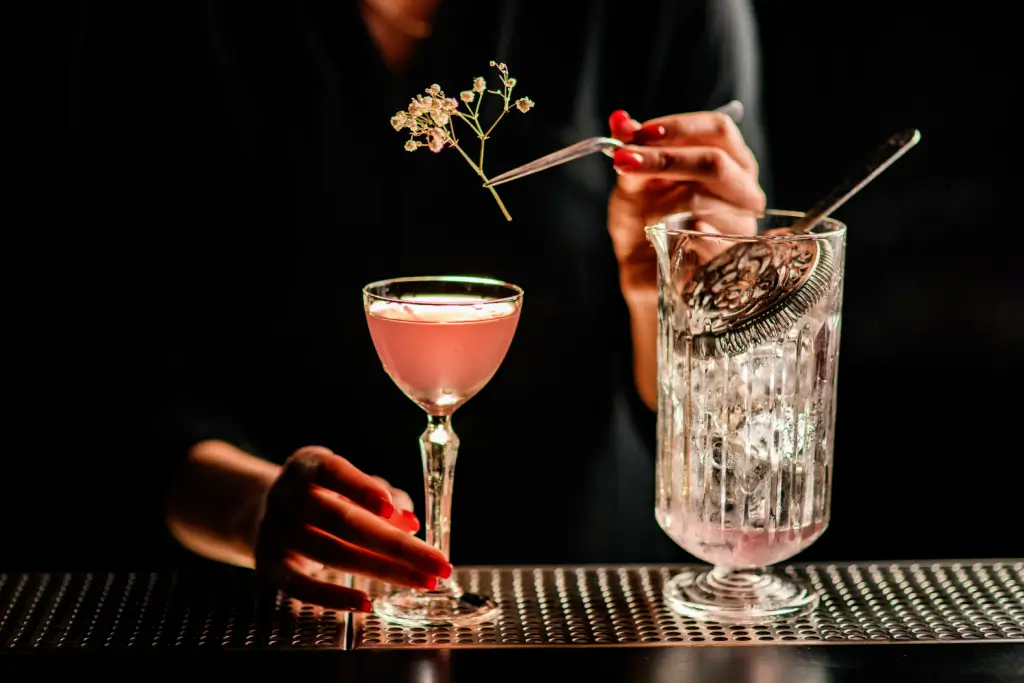
The Luxury Bar: Five Amazing Ones to Check Out!
If you’re into liquor, spirits, or any other types of alcohol, then you will definitely enjoy bar hopping in Japan! Here are five luxury bars that serve classic and innovative cocktails you can enjoy alone or with company!
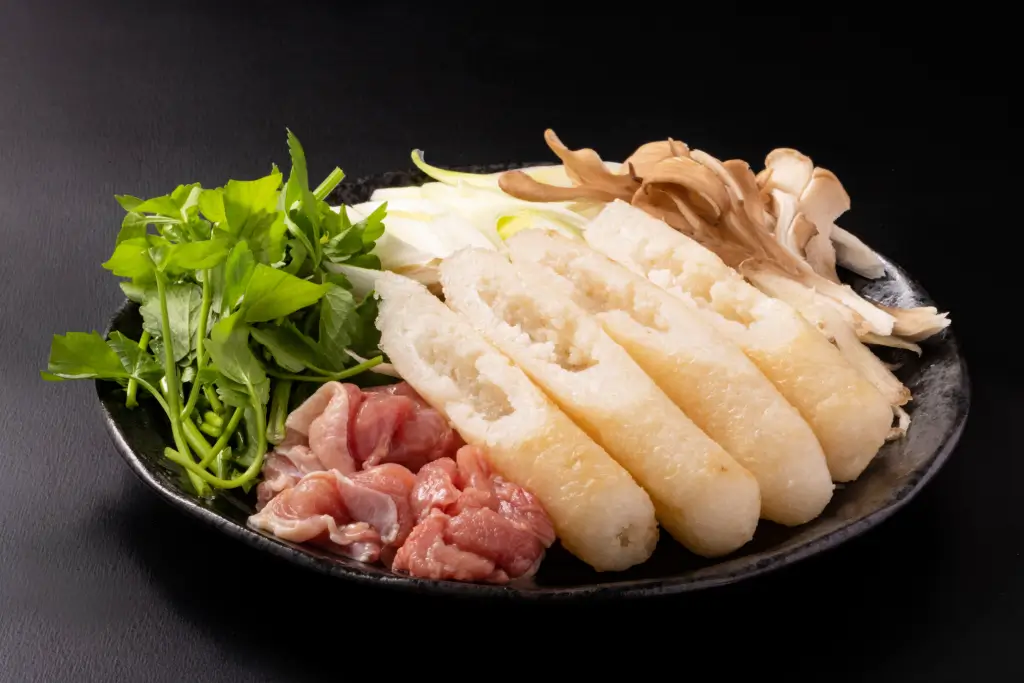
Akita Food: Five Great Dishes To Enjoy!
This prefecture is home to a broad selection of culinary delights and has become a must-visit destination for food lovers.
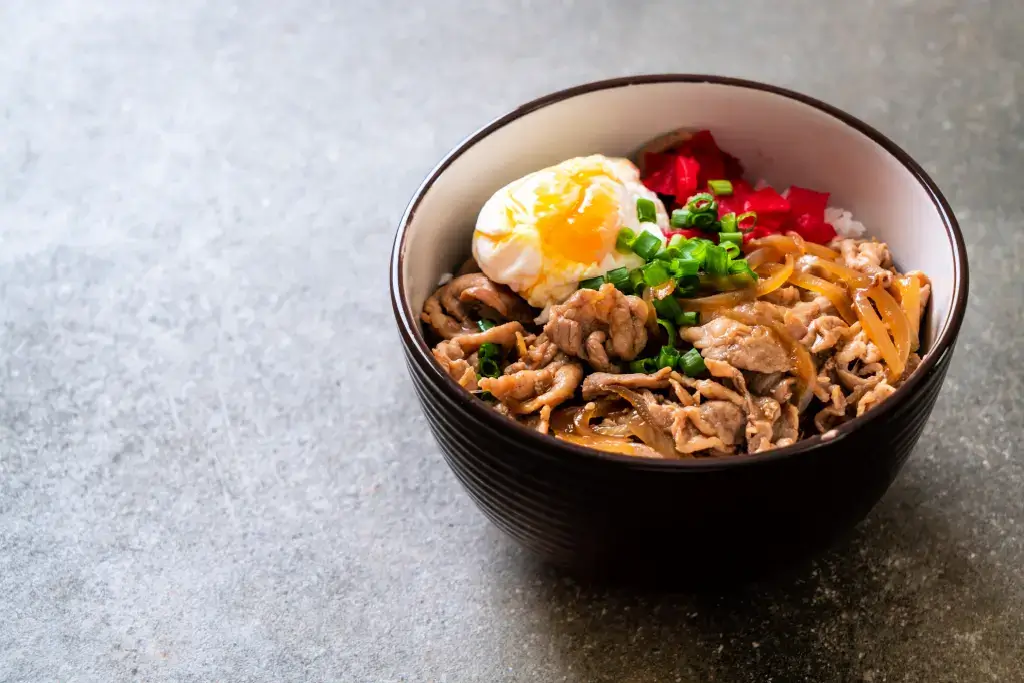
Donburi: The Amazing Rice Bowl Cuisine To Try!
Everyone in Japan loves donburi (rice bowl dish). Donburi rice bowls are the quintessential Japanese comfort meal. In a donburi, cooked rice is topped with meat, seafood, eggs, and vegetables. However, all sorts of toppings can be used, allowing for countless variations. As a casual meal, donburi is generally inexpensive, although this will vary depending…
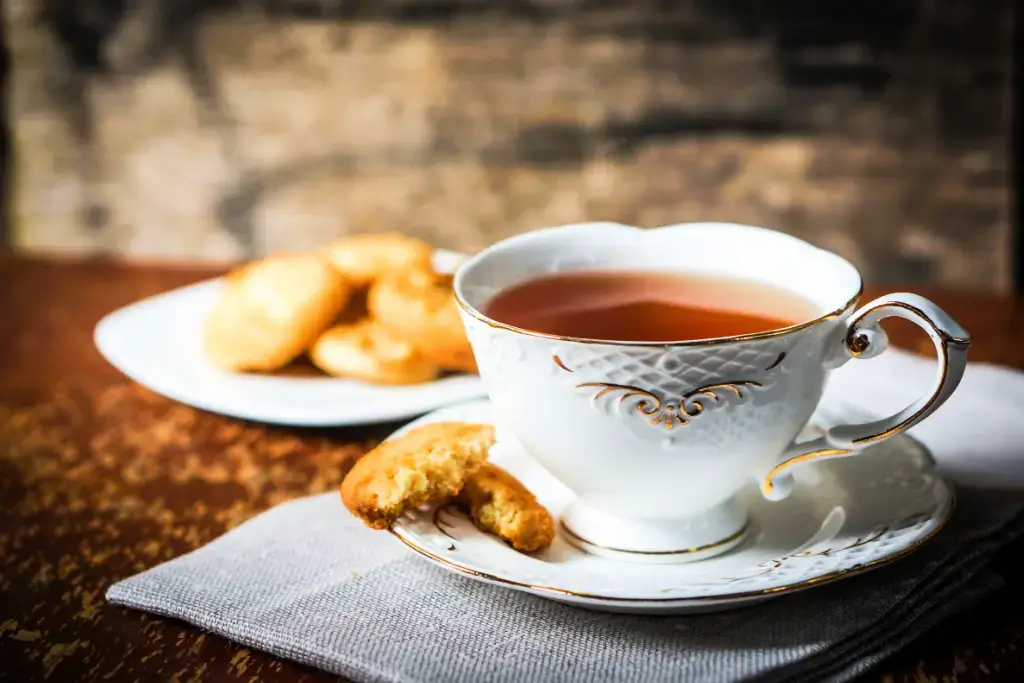
Afternoon Tea: Five Great Japanese Snacks to Try!
In Japan, afternoon tea is a tradition where friends gather to enjoy tasty Japanese snacks. Here are a few to try.



